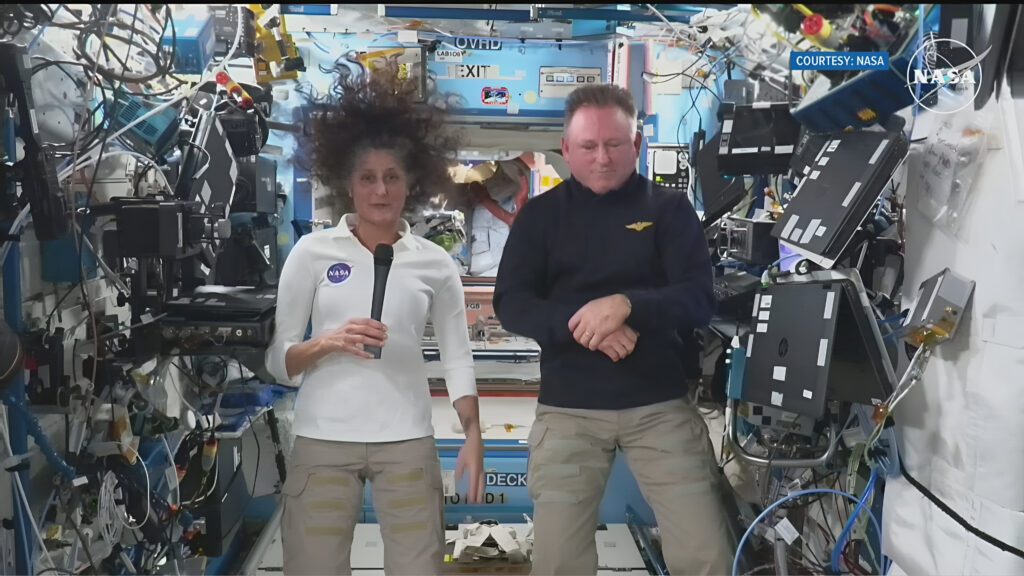NASA Astronauts on Their Boeing Starliner Mission
Over the last three months, the Boeing Starliner mission has taken center stage in NASA’s space exploration efforts. In their first public appearance since the mission, NASA astronauts shared personal insights on the challenges, triumphs, and emotional moments they experienced during their time aboard the International Space Station (ISS).
The crew, led by NASA astronauts Butch Wilmore and Sunny Williams, reflected on their journey, Boeing Starliner’s development, and the support they received from their team and the public. This article delves into their thoughts, shedding light on the mission’s intricacies and future implications.
The Evolution of the Mission
The mission has been a rollercoaster ride, evolving over the past three months as astronauts Wilmore and Williams worked through challenges to assess their spacecraft, Calypso. From unexpected developments to navigating technical intricacies, the crew’s resilience has been a key theme.
Overcoming Challenges
During the mission, the astronauts were constantly briefed through various communication channels, receiving updates from both NASA and Boeing. As Wilmore described, hearing about themselves—often referred to as “Butch and Sunny”—became a regular occurrence.
“It’s heartwarming,” Wilmore shared. “Hearing about the prayers and support from across the nation truly meant a lot to both of us.”
The bond between the crew and their supporters was evident. Messages of hope and encouragement kept the team’s morale high, demonstrating the human side of space exploration.
Key Milestones and Astronauts’ Reflections
Extended Mission: A New Challenge
When asked about their extended stay aboard the ISS, the crew reflected on both the highs and lows of long-duration missions.
Sunny Williams, who will soon take command of the ISS, emphasized the importance of camaraderie during such missions. “Being part of Expedition 71 has been a privilege. We’re with friends here, and that’s one of the biggest upsides,” she said.
The crew looks forward to the arrival of Expedition 72 members and continuing their work on the ISS, demonstrating the importance of collaboration in space exploration.
Trump Takes Aim at Harris, Biden Over Immigration in California
Voting from Space: A Civic Duty
One of the more personal moments shared by the astronauts was their commitment to exercising their right to vote, even from space. As U.S. citizens, both Wilmore and Williams highlighted the importance of participating in elections.
“We’ve already sent our requests for absentee ballots,” Wilmore revealed. “Voting is a crucial role we play as citizens, even while we’re up here.”
This ability to stay connected to Earth’s political processes underscores the technological advancements that make life aboard the ISS more manageable.
Thoughts on Boeing Starliner and the Space Industry’s Future
When NBC’s Tom Costello asked whether the astronauts felt let down by the Boeing Starliner delays, both Wilmore and Williams were quick to dismiss any negative feelings.
“Let down? Absolutely not,” Wilmore responded emphatically. “NASA is about pushing the envelope. Space exploration isn’t easy, and test flights always reveal unexpected challenges.”
The astronauts reiterated their faith in Boeing’s ability to address any issues that emerged during the mission, emphasizing the test flight nature of Starliner’s development. Their comments align with the broader space industry ethos: pushing boundaries means encountering and overcoming hurdles.
Lessons Learned and Moving Forward
Both astronauts acknowledged that Boeing and NASA are engaged in continuous discussions to address any lessons learned during the mission. While specific technical issues may take time to resolve, both organizations remain committed to making necessary improvements.
The astronauts expressed their gratitude for the extensive efforts made by Boeing’s ground team and NASA personnel, underscoring the collaboration between various teams as vital to the mission’s success.
“We’re grateful for the organization,” Wilmore said. “Space exploration is a risky business, but we do it because it’s hard, and that’s where we push ourselves.”
The Future of Human Spaceflight
As the Boeing Starliner mission continues to evolve, NASA and Boeing are poised to apply lessons learned to future missions. With ongoing efforts to refine spacecraft operations, the future of human spaceflight looks promising.
Space enthusiasts and the general public alike are encouraged to follow NASA’s updates and support the ongoing work of astronauts who risk their lives for the advancement of science and exploration.

